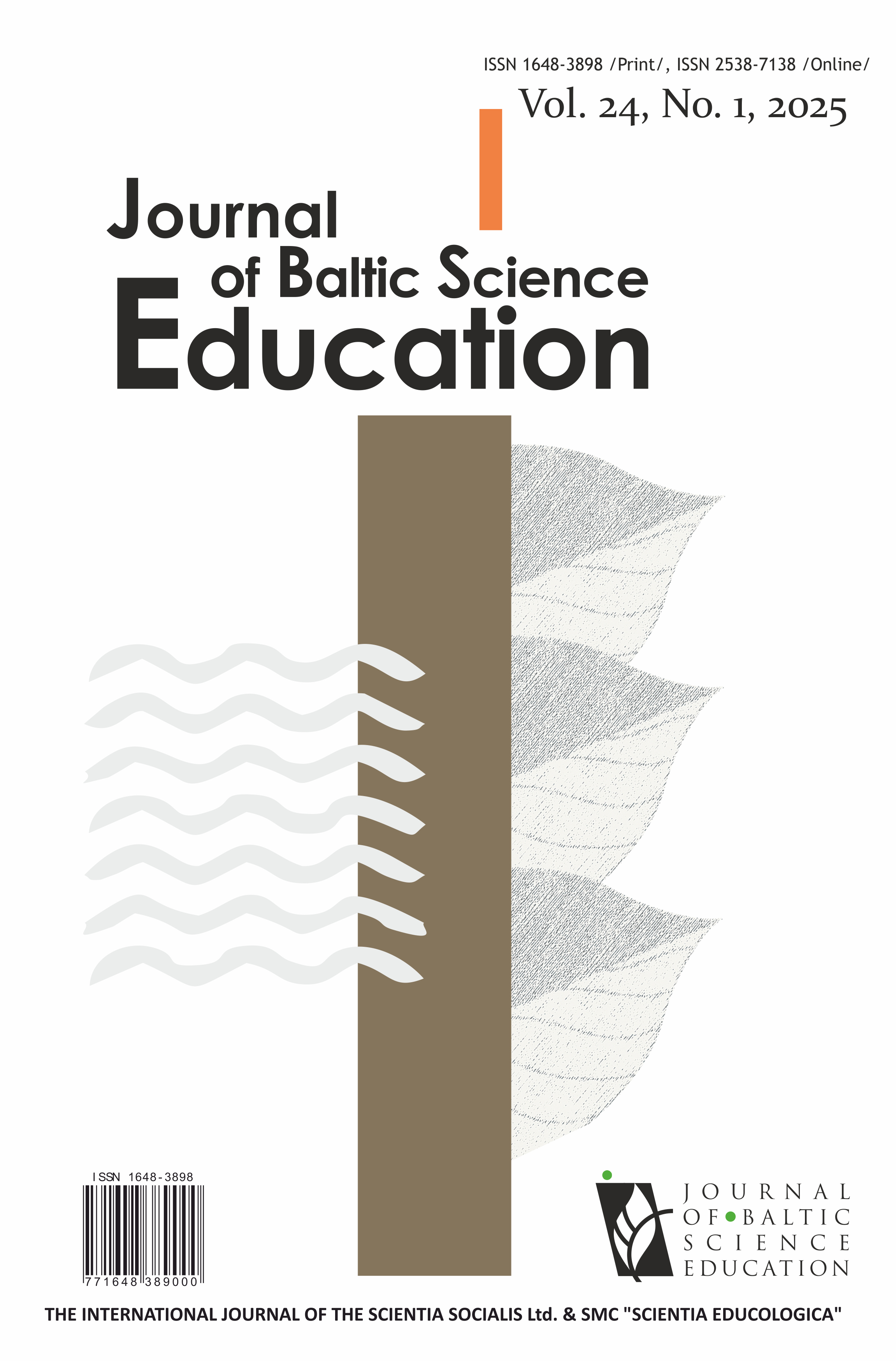ENHANCING PHYSICS LEARNING ACHIEVEMENT, MOTIVATION AND INQUIRY SKILLS IN A FLIPPED CLASSROOM: A STRUCTURED INQUIRY-BASED VIRTUAL LAB APPROACH
ENHANCING PHYSICS LEARNING ACHIEVEMENT, MOTIVATION AND INQUIRY SKILLS IN A FLIPPED CLASSROOM: A STRUCTURED INQUIRY-BASED VIRTUAL LAB APPROACH
Author(s): Chuang Chen, Siti Nazleen Abdul Rabu, Nurullizam JamiatSubject(s): Social Sciences, Education
Published by: Scientia Socialis, UAB
Keywords: inquiry-based learning; structured virtual laboratory; physical learning; learning motivation; inquiry skills;
Summary/Abstract: Integrating virtual laboratories (VLs) with science education promotes inquiry-based learning by providing an interactive, dynamic environment in which students actively engage with scientific concepts. While previous research highlights the effectiveness of VLs as tools in the IBL process, few studies have embedded the entire inquiry process within VLs or explored their application in flipped classrooms. This study addresses these gaps by proposing a Structured Inquiry-Based Virtual Lab (SIVL) approach to improve students' physics learning achievement, motivation, and inquiry skills in a flipped physics classroom. A quasi-experimental design was used with 120 ninth grade students from three intact classes in a lower-secondary school located in central China. The three classes were randomly assigned to one of these groups to implement flipped physics learning by using SIVL, General Virtual Lab (GVL), or a traditional flipped classroom (TFC) by using the physics laboratory method, respectively. The results revealed the SIVL approach improved students' physics learning achievement, inquiry skills, and intrinsic and extrinsic learning motivation, which indicates its effectiveness as an innovative model for physics education.
Journal: Journal of Baltic Science Education
- Issue Year: 24/2025
- Issue No: 1
- Page Range: 37-52
- Page Count: 16
- Language: English

